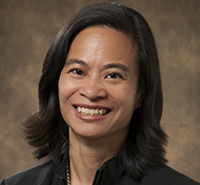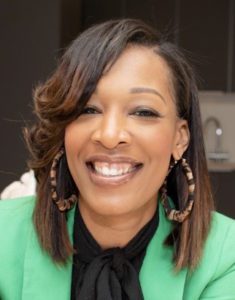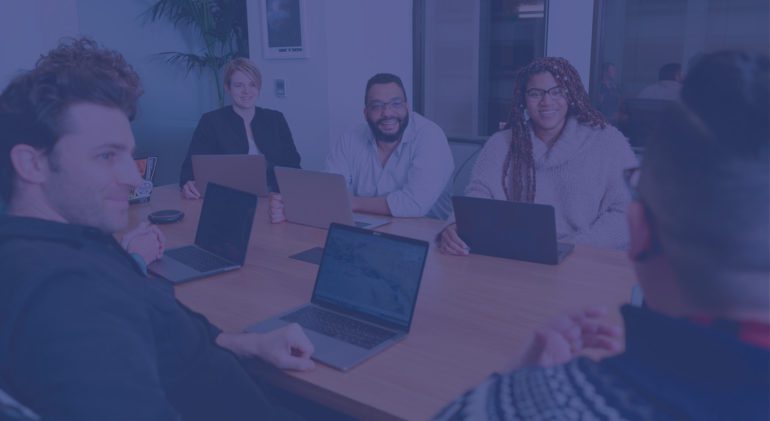In the spring of 2021, in partnership with Richmond-The American International University in London, a faculty member and former student at The Chicago School created a four-week micro-credential focusing on diversity, equity, inclusion (DEI). This was one of the first micro-credentials offered through The Chicago School.
The matters at hand
For the past several years, issues surrounding diversity, equity, and inclusion continue to be front of mind for many Americans and abroad. Here in the United States, the 2020 murder of George Floyd by police, the protests that followed, and the subsequent trial and conviction of Derek Chauvin forced us as a society to confront ongoing realities many chose to believe were in the past.
Similarly, the anti-Asian violence that cost so many lives in Atlanta in 2021 and continues on city streets shows how readily societies will turn on those perceived to be other. The opportunity to study how this dynamic works from one country to the next is an example of the benefits that can come out of an online micro-credential program with participants from many countries.
Also, the COVID-19 pandemic has exacerbated economic inequities as those workers deemed “essential” toiled under dangerous conditions for low pay while many at the top of the income scale became wealthier.

With these societal conditions present, it was not surprising that the DEI program would attract broad interest. “We had around 140 participants register,” says Patricia Perez, Ph.D., the professor overseeing the program. “That is a lot of people.” When the time came for the final discussion period, Dr. Perez invited Dr. Londí Cox to co-present. At the time, Dr. Cox was a doctoral student in the International Psychology Ph.D. program at The Chicago School and has since earned her degree.
“It was such a pleasure to have discussions and conduct activities surrounding the implicit biases that can lead to lack of diversity, exclusion, and inequality in professional settings,” Dr. Cox says. “The conversations continued well after the micro-credential program and a collaboration group was formed.”
Collaboration between two institutions fosters understanding
This micro-credential program was made possible by a Faculty Internationalization Grant from The Chicago School. The objectives of the grant were to foster a dialogue on diversity, equity, and inclusion in a global context in the hopes of gaining an enhanced understanding of the application of the three principles in the real world. The topics addressed engendered a great deal of back and forth among the international participants, so much so that many of those enrolled wanted to keep the conversation going. The result was a monthly meeting that has continued for more than a year. In the time since, they have been meeting at the end of every month, including some of the original students and others who have been invited in along the way.
This extended discussion surprised even the organizers. “I took part in cofacilitating the monthly meetings and

organizing resources and tools for continued change in the workplace,” Dr. Cox says. “When I was invited to be a part of the initial training, I had no idea how far of a reach and impact that collaboration would have, even a year later.”
Dr. Perez credits the international focus of the program for both the significance of the content and the ongoing colloquy it engendered. “The way that we teach diversity, equity, inclusion in our department is we look at DEI core concepts from an international perspective recognizing that these words— diversity/equity/inclusion—are understood and implemented relative to the individual and/or group,” she says. “Then we ask, ‘What are similarities across countries, communities, and individuals? What are the differences?’”
In the class discussions, participants share their stories, and the ensuing conversation centers around DEI core concepts such as bias, prejudice, and discrimination. The participants reflect on these issues based on a series of reflective questions. An important part of the process is journaling through which they develop their impressions and conclusions based on their understanding of the issues.
The value of micro-credentials
More and more, students are discovering the advantages of micro-credentials. Five benefits of micro-credentials include:
- First, they are skills and competency-based.
- Second, they’re inexpensive and, at times, free.
- Third, they require only a limited commitment for people who want to build their resume or their skillsets but don’t wish to return to a full degree program.
- Fourth, they’re stackable for those who want additional skills to add to their portfolio.
- And fifth, the barrier to entry is very low. They are open to the public. Anyone who’s 18 years and older can register.
From the point of view of institutions of higher education, micro-credentials can allow them to introduce concepts that build particular skills and competencies to their faculty and curriculum. This fact was evident in the aftermath of The Chicago School DEI micro-credential experience. In addition to the continuing discussion group it sparked, one participant in the program who had never heard of The Chicago School was so impressed that they enrolled in the master’s program in International Psychology, and, on the strength of her presentation, Dr. Cox was offered a part-time position in the Department of Psychology at Richmond. She was unable to accept due to prior commitments.
Reinventing higher ed
As a result of the continuing discussion and feedback on the DEI micro-credential program, Dr. Perez was awarded two GLOBE grants from The Community Solution Education System for 2022 to run two additional DEI programs on the topics of organization and human resources and child and adolescent development.
“I feel that micro-credentialing can be a useful tool in making sure that those who are leading change on varying subjects are qualified and knowledgeable in the respective matters,” Dr. Cox says. “The lack of training can lead to more harm than good, and obtaining a micro-credential is proof that a person has the needed education and experience in the area.”
Dr. Perez agrees. “This program demonstrated how much interest there is in issues surrounding diversity, equity, and inclusion,” she says. “Because these principles are at the core of The Chicago School’s mission, it is ideally positioned to connect with students/faculty/staff and a global audience in a range of formats.”
To learn more about the International Psychology Department at The Chicago School, fill out the form below.

